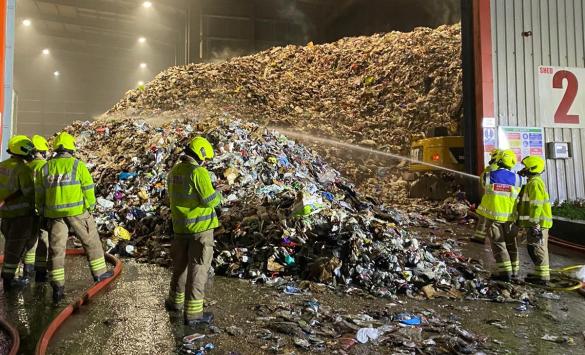A presentation on a collective solution could be offered to the Office of Fair Trading in January on a consultative basis. And, this is likely to be followed in February by publication of a joint Department of Trade and Industry and Department of the Environment, Transport and the Regions consultation document on how the UK could meet the end-of-life vehicles (elvs) directive.
A meeting of ACORD last week at the British Metals Federation’s offices near Huntingdon was attended by government officials. Also present was Andrew Banfield, head of the energy from waste association.
Mr Banfield surprised some present by saying that there would not be sufficient incineration capacity to handle 5% of residue from metal shredders as many in the ACORD group had hoped. One member of the group remarked: “Mr Banfield’s comments make depressing reading.”
Few details about a possible funding mechanism for elvs have yet emerged and car manufacturers are still in some disagreement about a solution. The government is thought to consider that the 77% of the vehicles which are recycled as metal should not attract any funding because this is already carried out as an effective business operation.
David Hulse, technical manager of ACORD and who is based at the Society of Motor Manufacturers and Traders (SMMT) said that generally the group accepted this view. “I wouldn’t dispute the principle that 77% is carried out by economic means and should not need subsidising. But, money will be needed for getting up to the targets and for treatment and depollution which will have to be carried out before the shredders are used as well as removing some parts for recycling.”
It is likely that part of the agreed approach in the UK will see some implementation on a voluntary basis although there will be legislation, especially covering data collection by an electronic route. A lack of data has already meant that the ACORD report this year was not as up-to-date as it should have been and pressure is to be put on the Driver and Vehicle Licensing Agency to get its act together on data collection.
Metal recyclers emphasise that they are seeking to contribute a positive role in the whole process. Rick Wilcox, executive director of the British Metals Federation (which represents the operators of vehicle shredders and other metal recyclers), said that: “We collectively now see the way forward as working with the government and the manufacturers, largely building on the August 1997 ACORD inter trade agreement.”
Mr Wilcox will be leaving the BMF in March next year and will be joined in January by David Hulse, his successor. Mr Hulse’s post at the SMMT will be taken by Steve Franklin.









Subscribe for free